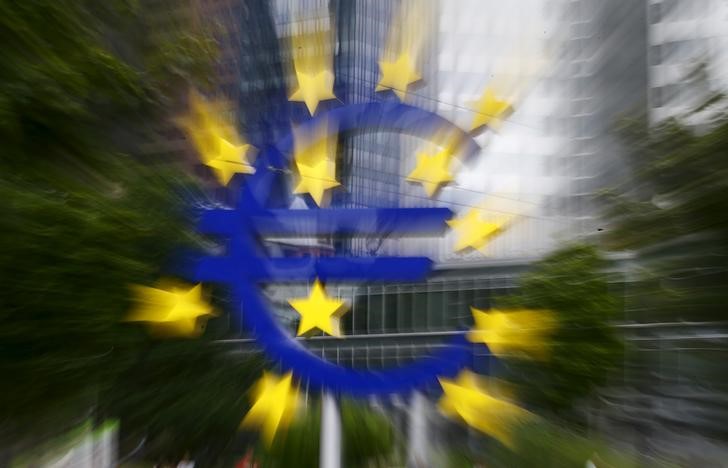Who is Kevin Hassett? Wolfe looks at the Trump ally tipped to become Fed Chair.
Investing.com - Euro zone private sector activity continued to grow in August, but expectations for future growth fell to the lowest level for almost two years, according to survey data released on Thursday.
The preliminary reading of the Markit euro zone manufacturing purchasing managers’ index slid to a 21-month low of 54.6 this month from 55.1 in July. Economists had forecast an unchanged reading.
A reading above 50.0 on the index indicates industry expansion, below indicates contraction.
The services PMI ticked up to a two month high of 54.4 from 54.2 a month earlier, in line with expectations.
The composite output index, which measures the combined output of both the manufacturing and service sectors also edged up to a two month high, rising to 54.4 from 54.3. Economists had expected the composite index to tick up to 54.5.
Although growth rates improved slightly in manufacturing and services, both remained among the weakest seen for at least one-and-a-half years.
A particularly sluggish performance was seen in manufacturing, where new export orders registered the smallest monthly increase in two years.
Employment growth hit a six-month high, but while service sector jobs growth struck the highest since October 2007, factory payroll growth slipped to a 17-month low.
Future expectations of business activity meanwhile deteriorated to a 23-month low, slumping to a 34- month low in manufacturing and a 21-month low in the service sector. Optimism was subdued by recent signs of cooling demand, higher prices and rising political concerns.
“The survey data indicate that the euro zone economy looks to have continued to grow at a steady rate in August, raising hopes that the third quarter could see GDP growth match the 0.4% expansion seen in the second quarter. In fact, the survey evidence suggests that the official data so far this year could yet be revised slightly higher,” said Chris Williamson, chief economist at survey compiler Markit.
“Escalating political worries, rising prices and a recent slowdown in order book growth have all contributed to the gloomiest outlook for almost two years, according to companies’ expectations of their future output. In manufacturing, optimism is down to its lowest for almost three years, as a nearstalling of exports corroborated escalating trade war worries.”
